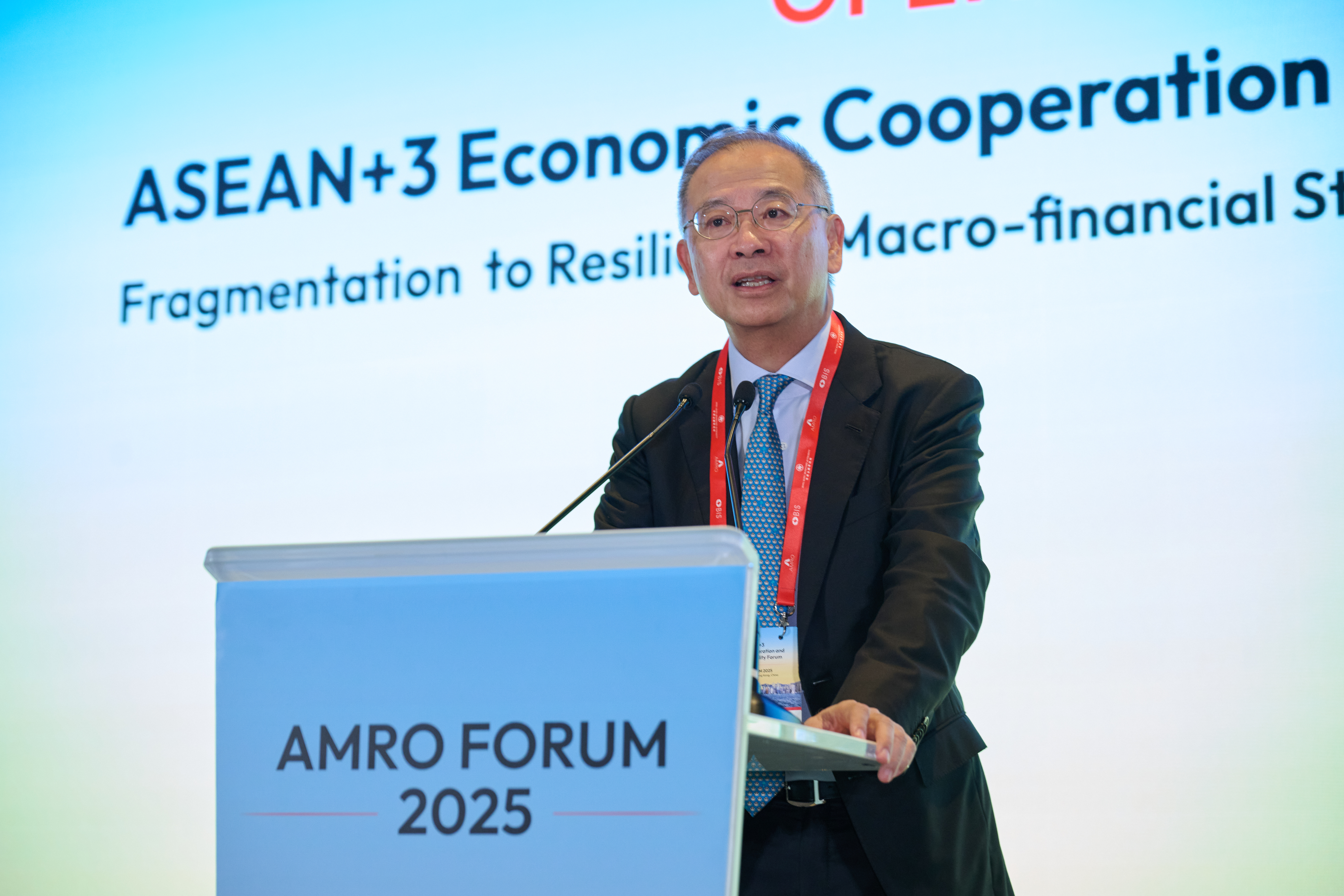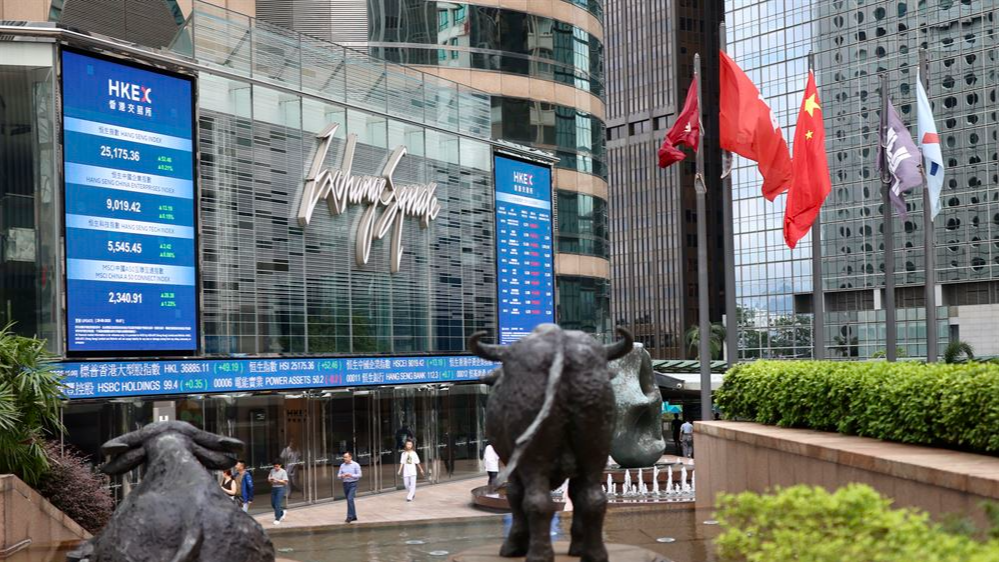
Hong Kong can play three key bridging roles in deepening regional cooperation: pushing forward with trade digitalization; enhancing regional payment integration and local currency settlement; and strengthening the regional financial safety net.
This is to ensure the region can withstand possible external shocks from broader risks associated with the real economy and financial markets, as well as to tackle structural changes such as an aging population, digitalization, and the rise of artificial intelligence, financial regulators in Hong Kong said at 4th ASEAN+3 Economic Cooperation and Financial Stability Forum on Tuesday.
The forum was organized by the ASEAN+3 Macroeconomic Research Office (AMRO) and co-hosted by the Hong Kong Monetary Authority (HKMA) and the Bank for International Settlements (BIS). The event was held in the Hong Kong Special Administrative Region for the first time.
Themed “From Fragmentation to Resilience”, the forum explored how the ASEAN+3 region (the 10 ASEAN member countries plus China, Japan and South Korea) can safeguard financial stability, strengthen macro-financial resilience and sustain long-term prosperity amid global fragmentation.
HKMA Chief Executive Eddie Yue Wai-man said pushing forward with trade digitalization is the first area in which Hong Kong can facilitate regional economic integration.
Hong Kong has launched Project CargoX and Project Ensemble, which cover digital trade finance and trade document tokenization respectively, making the trade process more streamlined, efficient and accessible, and thus empowering small and medium-sized enterprises to participate more fully in the regional supply chains.
“Benefits from these initiatives can grow exponentially when more jurisdictions come on board, and we hope that they will be able to join hands and work on those initiatives together,” Yue said.
ALSO READ: HK to pioneer tokenized deposits, digital asset real-value transactions
The HKMA chief executive said Hong Kong can also play a part in integrating regional payment and local currency settlement to boost cross-border efficiency by expanding the use of local currencies: “Local currencies still play a relatively small role in the region’s cross-border transactions,” he said.
“At HKMA, we have already connected the Faster Payment System with our counterparts in Thailand and the Chinese mainland in recent years, and we have also developed a cross-border wholesale central bank digital currency platform, joining hands with other banks. We hope to move forward with our ASEAN+3 colleagues,” Yue said.
This requires continued investment in deepening the local capital markets, developing hedging instruments and ensuring financial infrastructures are interoperable across borders, he added.

The third area is to strengthen the regional financial safety net. “The HKMA remains committed to strengthening our collaboration with AMRO and the BIS Asian office and to advance regional financial integration and resilience. Today’s forum is a good example of that collaboration,” Yue said.
Securities and Futures Commission Chief Executive Officer Julia Leung Fung-yee said Hong Kong can play a pivotal role amid the global realignment of production hubs, supply chains and investment flows. Developing Asia attracted more than $600 billion in foreign direct investment last year, which represented 40 percent of global flows. Intraregional trade now accounts for nearly 60 percent of the region’s total exports, she said.
“For Hong Kong to remain a critical financial conduit, financial firms here have launched new ties to the reconfigured regional treasuries, supply chain, financing and capital markets. ASEAN has transformed into a vibrant economic block. The Middle East and other regional markets are also looking to Hong Kong for diversification and new financial linkages,” Leung said.
READ MORE: Chan stresses Hong Kong’s three key roles in impact investing
The SFC CEO pledged that the financial regulator is reviewing its regulatory regimes to balance with innovation with stability and growth with prudence amid the four new regulatory landscapes: the growth of the private credit market, technological advance, the emergence of digital assets, and the new pivots in financial linkages.
“The resilience of the Asian economy benefits from the integration of regional economies and financial markets. As ASEAN still has room to promote regional trade integration, Hong Kong, as an international financial center and a superconnector, can play a bridging role,” Zhu Haibin, the research executive director at the HKMA, said at the forum.
Zhu said he believes that green transformation can be one of the areas for regional integration and development. “Hong Kong's total issuance of green and sustainable bonds last year increased by more than 60 percent year-on-year and also rose 15 percent in the first half of this year, providing support for green transformation,” he said.
Established in 2011, AMRO is an international organization that aims to contribute to the macroeconomic and financial resilience and stability of the ASEAN+3 region.


